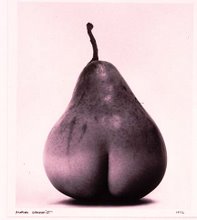Tisha B'av, for those that don't know, is a jewish holiday which remembers the dectruction of the first and second temple and the many horrible things that have befallen the jewish people; all of which either happened in the month of Av or began in it (see Jewish Calendar).
Perhaps the most interesting thing about this Holiday is that seems to fly in the face of belief in G-d. How can G-d allow bad things to happen to good people? How can G-d allow exiles? Pogroms? The Holocaust?
Some have rejected G-d entirely because of such events. I however will offer an alternative philosophy.
History isn't just a timeline; its a set, a story of interconnected events. In other words, there is rarely, if ever, an event in history that just purely a "cause" or just purely an "effect", as many events in history are both causes as well as effects.
For example, lets take an old jewish tale, and apply it to the grand-scale:
There was once a farmer, this particular farmer owned a horse. One day, the horse ran off. The entire village in which he lived in showed up at his doorstep and proclaimed "What a tragedy!" The farmer replied "maybe its a good thing, maybe it a bad thing." The next day, the horse returned but it returned with a pack of wild horses (it made friends). The whole village came to the farmer's doorstep and proclaimed "How wonderful!" The farmer replied "maybe its a good thing, maybe it a bad thing." The next day, the farmer's son was riding one of the wild horses and it bucked, and threw the farmer's son to the ground, breaking his leg. The whole village came to the farmer's doorstep and proclaimed "What a tragedy!" the farmer again replied "maybe it's a good thing, maybe it's a bad thing." The next day, a war was declared, and all able bodied men in the village were ordered to fight; except for the farmer's son, who was not of able body. The farmer then declared "It was a good thing my horse ran off."
The point of this tale is to highlight that what may be seen as a negative thing, can ultimately be positive (and alternately, visa-versa). One must be patient to see the full scope of events. The tale also highlights that what can be good on the microcosmic scale (the boy being injured prevents him from being drafted) can be bad on the macrocosmic scale (a war being declared). Of course, if one is a mercenary, then war is a good thing; so as always, it's a matter of perspective. So, how could all this apply to the destruction of the most holy site in judaism, Solomon's temple? How could the Holocaust be good?
Well, I don't think the Holocaust was good, in fact it was extremely evil, one of few cases in history where such a word could be applied accurately. However, the consequences of the Holocaust may not be evil. Greater acceptance, unity, and a commitment among nations to not allow such a thing to be forgotten, lest it happen once more. Some inaccurately point to the Holocaust as a point that created the State of Israel. The founding of Israel is actually rooted in the British Mandate of Palestine, approved in 1922 and put into effect in 1923 - nearly a decade before Kristalnacht and the first inklings of the Holocaust.
If we take a further look into history we can see a pattern: The Babylonian exile helped act as a cause for judaism to formalize the contents of the Tanach, and establish a coherent line of rabbinical thought. The destruction of the first temple showed that, in fact, the jewish people could live without it, and also effectively ended the era of direct prophecy from G-d. The time period during the re-building of the second temple, and eventual destruction showed that the jewish people could also live without a "direct-line to G-d" (though, at that time, not without the Temple and the sacrifices), and finally... without sacrifices (which already had strict limitations, and as some historians point out, were already considered "less than" simple prayer). I could go on and on, but I think you get the point.
Some of you may be wondering....but why would G-d have to torture people (or allow torture/exile/death)? Lets look at recent history: 9/11. America pulled together like never before or since. The fact is, tragedy can often breed the best, and worst in people; and there are few things quite as powerful as tragedy.
So...In honor of Tisha B'av, lets be patient.
Subscribe to:
Post Comments (Atom)





No comments:
Post a Comment